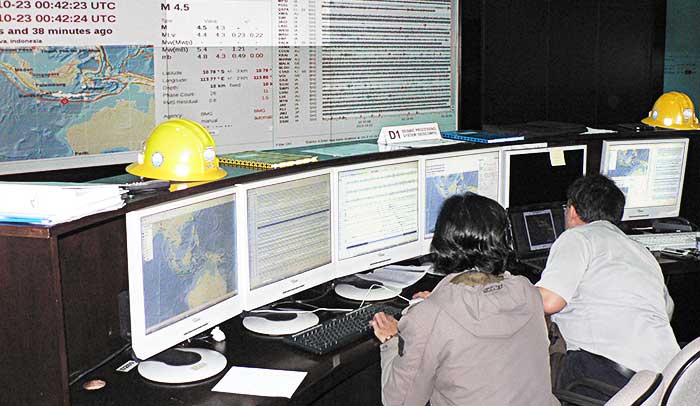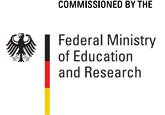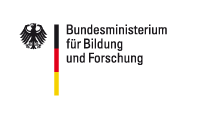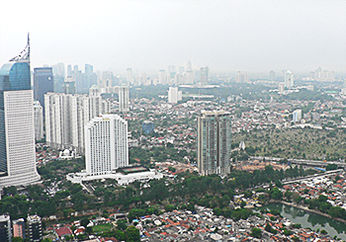- Funding opportunities
- Political framework
- Priorities of the cooperation
- Bioeconomy
- Environmental technologies and georisks
- Geothermal energy
- Research presence in geoscience
- Role of the International Bureau project team
Funding opportunities
Funding opportunities in the cooperation with Indonesia are published under 'current announcements'.
For any other inquiry, please contact the International Bureau.
Political framework
The collaboration with Indonesia is based on the Cooperation Agreement on Scientific Research and Technological Development (STC) of 1979, the first of its kind with a Southeast Asian country at that time. Based on the STC agreement, the Federal Ministry of Education and Research (BMBF) maintains the cooperation with Indonesia through an inter-ministerial committee.
Priorities of the cooperation
The cooperation over the last two decades focussed on marine research and coastal protection, setting up of a tsunami early warning system and the exploitation of geothermal energy. Research projects and the accompanying steering committees in the above mentioned fields have been completed by now. The early warning system was handed over to Indonesia in spring 2011. The binary geothermal energy plant in Lahendong, Sulawesi, developed by the GeoForschungsZentrum Potsdam (GFZ) and Indonesian partners (Pertamina and PNE), was inaugurated by then Research Minister Nasir on 21 January 2019.
Current cooperation projects are dealing with bioeconomy, the development of environmental technologies including the analysis of georisks, the integration of geothermal energy resources into the national electricity grid and geo-sciences.

© International Bureau / Ludwig Kammesheidt
Bioeconomy
The first project with Indonesia under the BMBF call 'Bioeconomy International' worked on innovative value-added chains in chocolate processing and was funded until 2022.
The project 'Circular Indonesian AgricultuRE' (CARE) explores options to integrate residuals from rice production as bioenergy into the rural grid (2020-2023). It is coordinated by the Fraunhofer Institute for Environmental, Safety and Energy Technology (UMSICHT). Another project is working on the production of insects for the food industry (EntomoValue). The project is led by the Fraunhofer Institute for Process Engineering and Packaging (IVV) in Freising (2022-2025).
Environmental technologies and georisks
In the third call of CLIENT II 'International partnerships for sustainable innovations' 3 projects with Indonesia were selected for funding in the period from 2021 to 2024.
In rare cases, tsunamis can also be triggered by volcanoes and landslides. Until now, the Indonesian tsunami early warning system has not been able to include such risks. A scientific cooperation project between Indonesia and Germany is now set to change this. The project TsunamiRisk is coordinated by the German Research Centre for Geosciences (GFZ) in Potsdam.
The textile industry is an important commercial sector in Indonesia. The project EnaTex, led by the 'Institut für ZukunftsEnergie und Stoffstromanalyse' (IZES) gGmbH in Saarbrücken, is developing with the Indonesian industry and academic partners processes for an enhanced production efficiency by using renewable energy resources.
The project 'Efficient and Sustainable Recovery of Strategic Elements from Indonesian Ore Deposits' (StratOre) under the coordination lead of the Helmholtz Centre Dresden-Rossendorf (HZDR) addresses exploitation methods for minerals and metals which are less environmentally destructive and more profitable by integrating so-called 'rare minerals and metals' into the exploitation process.
Geothermal energy
Within the framework of the GFZ-project 'System integration of a geothermal binary power plant – SigN' (2019-2022), various supply and integration concepts of low-temperature power plants, so-called binary power plants, will be evaluated, also with regard to infrastructural preconditions and considering aspects such as operational safety and plant reliability. Geothermal binary power plants are envisaged as targeted example application.
Research presence in geoscience
As part of the APRA (Asian-Pacific Research Area) call 'Development of Research Presences in the Asian-Pacific Region' (2016) the Faculty of Georesources and Materials Technology of the RWTH Aachen University and Gadjah Mada University (UGM) have established a competence network and science campus in the field of georesources (GetIn-CICERO), which was completed in 2022. The jointly run infrastructure and capacities continue to serve research and education along the entire anthropogenic material cycle.
Topics include, in particular, the environmentally friendly development of new raw materials and the exploitation of existing mineral deposits, material-cycle management, sustainable groundwater management in densely populated areas, micro-pollutants in the water cycle, geo-risks and climate adaptation in coastal regions, and energy efficiency in mining and metal finishing. A lab facility was established as a hub for joint research and training at UGM.
Role of the International Bureau project team
On behalf of the German Federal Ministry of Education and Research (BMBF), the International Bureau supports the goal of expanding the international network of German universities, research institutions and companies, in order to facilitate the acquisition of expertise and innovative advantages for German science and industry. Thus, the International Bureau contributes to the implementation of the international dimension in the field programmes of the BMBF.










